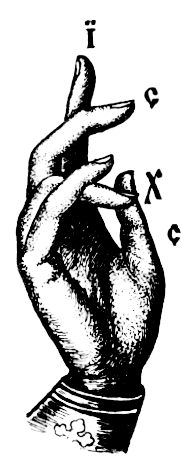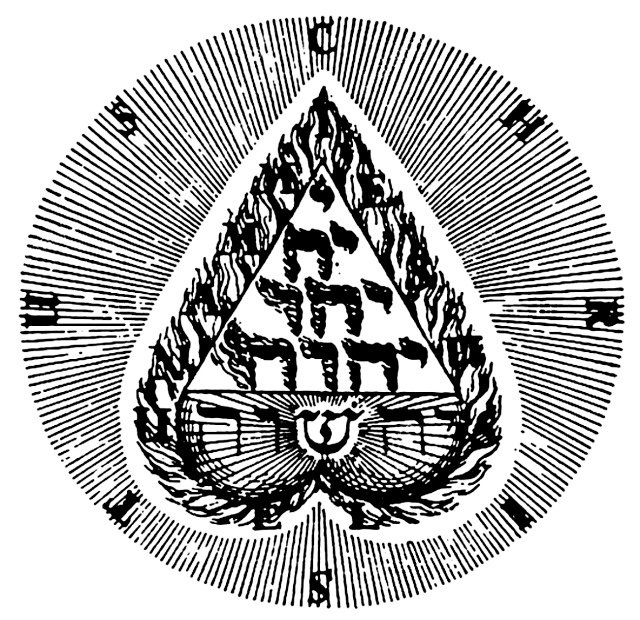The Mystical Depth of The Ten Commandments
- טימותי לורנס
- Jan 21, 2022
- 6 min read
Updated: Dec 8, 2022
This week’s (1/21/22) Parshah is Yitro and it contains The Ten Commandments, which is probably the most important part of the Bible.


The first letter of The Torah is Bet ( ב ) and the last letter of The Torah is Lamed ( ל ). Of course, Hebrew is read from right to left, so if we put these two letters together, we get Lev ( לב ) which is the Hebrew word for Heart. This tells us that The Torah is The Heart of the Bible and that everything else in the entire book is based on The Torah. So, if The Torah is The Heart of The Bible, then The Ten Commandments would be The Heart of The Heart. This is one small section of The Bible in which the world seems to come together about.
According to The Zohar, each of The Ten Commandments correspond to one of The Ten Sefirot. Below, I have listed each Commandment and the Sefirah it corresponds with.

The Ten Commandments - Exodus 20:2-14
First Commandment (Exodus 20:2) - Keter (Crown)
I am the Lord Your God, who brought you out of the land of Egypt, out of the house of bondage.
Second Commandment (Exodus 20:3-6) - Chochmah (Wisdom)
You shall have no other gods beside Me. You shall not make for yourself any graven image, nor any manner of likeness, of any thing that is heaven above, or that is in the earth beneath, or that is in the water under the earth. You shall not bow down to them, nor serve them, for I, the Lord Your God, am a jealous God, visiting the iniquity of the fathers upon the children unto the third and fourth generation.
Third Commandment (Exodus 20:7) - Binah (Understanding)
You shall not take the name of the Lord Your God in vain; for the Lord will not hold him guiltless that takes His name in vain.
Fourth Commandment (Exodus 20:8-11) - Chessed (Grace, Loving Kindness)
Remember the Sabbath, to keep it holy. Six days you shall labor, and do all your work; but the seventh day is a Sabbath unto the Lord Your God, in it you shall not do any manner of work, you, nor your son, nor your daughter, nor your man-servant, nor your maid-servant, nor your cattle, nor your stranger that is within your gates; for in six days the Lord made heaven and earth, the sea, and all that in them is, and rested on the seventh day. Wherefore the Lord blessed the Sabbath day, and made it holy.
Fifth Commandment (Exodus 20:12) - Gevurah (Judgment)
Honor your father and your mother, that your days may be long upon the land which the Lord God gives you.
Sixth Commandment (Exodus 20:13) - Tifereth (Beauty)
You shall not murder.
Seventh Commandment (Exodus 20:13) - Netzach (Eternity)
You shall not commit adultery.
Eighth Commandment (Exodus 20:13) - Hod (Glory)
You shall not steal.
Ninth Commandment (Exodus 20:13) - Yesod (Foundation)
You shall not bear false witness against your neighbor.
Tenth Commandment (Exodus 20:14) - Malcut (Kingdom)
You shall not covet your neighbor’s house, nor his wife, his man-servant, his maid-servant, nor his ox, nor his ass, nor anything that is your neighbor’s.
The Zohar (Yitro) explains how the first five of these ten commandments (or utterances) are spiritual laws and are manifested from the right side. The remaining five are physical laws which come from the left side. Since they all come from HaShem, combining both sides into perfection, the first five commandments mystically correspond with the last five. Having a good understanding of this blesses us a much deeper understanding of The Word, bringing us closer to HaShem, thus elevating our spiritual perception. Nothing can help us achieve this level of Biblical interpretation and this overall spiritual elevation better than words of The Zohar itself:
From The Zohar (Volume Yitro)
490. We have learned that the first five commandments IN THE RIGHT SIDE are all inclusive. In these five commandments the second five OF THE LEFT are engraved, five within five. How? The first commandment, "I am Hashem your Elohim" (Shemot 20:2) corresponds to, "You shall not murder," for as we learned, these two are under one principle. For one who murders diminishes the image and likeness of his Master, because according to the scripture, "in the image of Elohim made He man" (Beresheet 9:6), and: "And upon the likeness of the throne was the likeness as the appearance of a man" (Yechezkel 1:26).
491. Rabbi Chiya said: It is written, "Whoever sheds man's blood by man, his blood shall be shed" (Beresheet 9:6). He who sheds blood is considered as if he diminishes the supernal image and likeness above, meaning that he does not diminish the image of the man BELOW, but another image, and this is the interpretation of the verse: "Whoever sheds man's blood by man, his blood shall be shed". The damage he does by shedding blood reaches the supernal man. Why? "...for in the image of Elohim made He man." Therefore, they are interdependent, THE FIRST COMMANDMENT DEPENDS ON "YOU SHALL NOT MURDER."
492. "You shall have no other Elohim beside Me," corresponds to, "You shall not commit adultery." THE ADULTERER is false to the Name of the Holy One, blessed be He, which is impressed upon man, a sin including many other sins and entailing corresponding punishments. He who is unfaithful in this, is unfaithful towards the King, as it is written: "They have dealt treacherously against Hashem, for they have begotten strange children" (Hoshea 5:7), and, "You shall not bow down to them, nor serve them." One is the result of the other. THUS, "YOU SHALL HAVE NO OTHER ELOHIM" IS CONNECTED WITH, "YOU SHALL NOT COMMIT ADULTERY."
493. "You shall not take the name of Hashem your Elohim in vain," corresponds to "You shall not steal." For a thief is inclined to swear falsely because he who steals also lies, as it is written: "Whoever is partner with a thief is his own enemy, he hears the adjuration of witnesses, but discloses nothing" (Mishlei 29:24).
494. "Remember the Shabbat day to keep it holy," corresponds to, "You shall not bear false witness against your neighbor," for as Rabbi Yosi said, the Shabbat day is called 'a witness', and man should bear testimony to the verse: "in six days Hashem made heaven and earth." And Shabbat comprises everything. Rabbi Yosi said that he who bears false witness against his neighbor lies against the Shabbat, which is the true witness, and the verse, "You will show truth to Jacob" (Michah 7:20), refers to the same motive which is expressed in the verse: "Wherefore the children of Yisrael shall keep the Shabbat" (Shemot 31:16). Therefore, he who lies against the Shabbat lies against the whole Torah. Hence, they are interdependent. THUS, "REMEMBER" IS CONNECTED TO "YOU SHALL NOT BEAR FALSE..."
495. "Honor your father and your mother," corresponds to, "You shall not covet your neighbor's wife." According to the explanation of Rabbi Yitzchak, "Honor your father," refers to one's own father; for when he who covets a woman begets a child, the child will honor another who is not his own father. It is written: "Honor your father and your mother," and, "You shall not covet your neighbor's wife." The second part OF THE FORMER is, "that your days may be long in the land which Hashem your Elohim gives you," MEANING that whatever is given to you shall be yours, and you shall not covet another. Assuredly, they are interdependent. THUS, "HONOR..." IS CONNECTED WITH "YOU SHALL NOT COVET."
496. These first five COMMANDMENTS ON THE RIGHT SIDE include the second five. Therefore: "From His right hand went a fiery law for them," (Devarim 33:2) for all was included in the right, and the Torah was proclaimed in five voices. Rabbi Yehuda said that the whole TEN COMMANDMENTS were folded in such a way that five were within five, corresponding to the five Books of the Torah.
497. Rabbi Elazar explained that in the ten commandments were engraved all the laws of the Torah, all the decrees and punishments, all the laws concerning purity and impurity, all the branches and the roots, trees and plants, heavens and earth, seas and depths, for the Torah is the Name of the Holy One, blessed be He. As the Name of the Holy One, blessed be He, is engraved in the ten commandments, the ten commandments are the Name of the Holy One, blessed be He. So is the whole Torah engraved in them, and the whole Torah is thus one Name, the Holy Name of the Holy One, blessed be He, indeed. 498. Blessed is the one who is worthy of the Torah, for he will be worthy of the Holy Name. Rabbi Yosi said that he will be worthy of the Holy One, blessed be He, Himself, as He and His Name are one. Blessed be His Name, for ever and ever. Amen.
אמן
חסד ושלום עליכם והרבה אהבה וברכות

Sefer Zohar (Parashat Yitro), Free PDF Download:
Sefer Zohar Complete, PDF Zip File Free Download:
2021/22 Messianic Parasha Schedule


















Comments